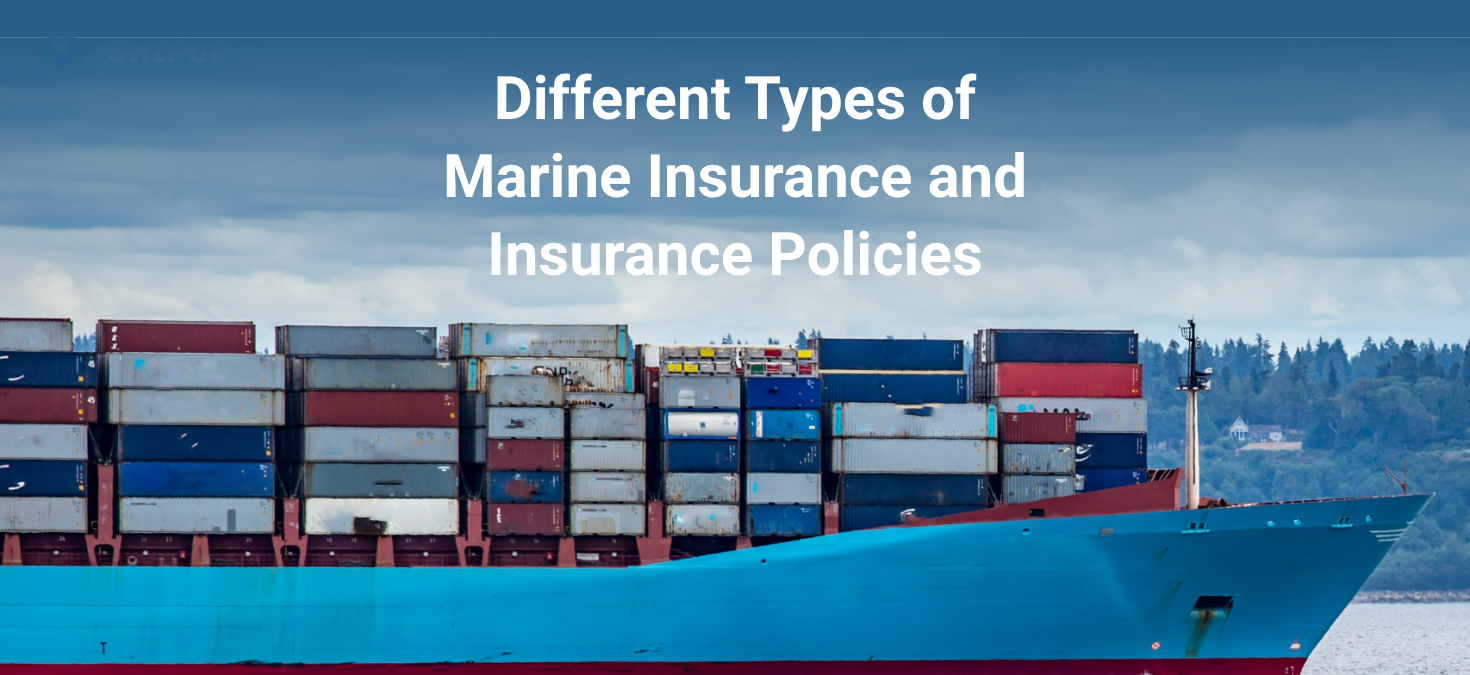The subject of Marine Insurance is vast and encompassing; that is why there is a long list of different types of marine insurance and insurance policies.
An acceptable sort or type of maritime insurance may be modified and picked to be adopted based on the needs and requirements of the carrier.
Why Marine Insurance?
Any form of insurance is intended to reduce risks in the case of unlucky occurrences like accidents, harm to property and the environment, or fatalities.
The risks are higher when it comes to ships since all elements are at play, such as the chance of losing costly cargo or large ships, the risk of causing environmental harm from oil contamination, and the possibility of losing precious lives of sailors caused by accident.
Different maritime insurances are made mandatory for ships and ship owners to acquire in order to ensure that all risks may be handled without running out of money when it’s most demanded. The ISM cannot be applied on ships until after that.
There are several marine insurance options that may be used for a client’s benefit, and each one is functional in its own manner. There are several marine insurance options that may be used for a client’s benefit, and each one is functional in its own manner.
A customer may select the finest marine insurance plans and benefit from having marine insurance based on the type and size of his business.
Many maritime insurance providers offer different insurance plans for ship owners, cargo owners, and charterers.
Different types of Marine Insurances
Hull Insurance:
Basically, hull insurance covers the torso and hull of the ship, as well as all the furniture inside.
Machinery Insurance:
This insurance covers all necessary equipment, and in the event of any operating damages, claims may be made for compensation (post-survey and approval by the surveyor).
Under Hull & Machinery (H&M) Insurance, the two insurances mentioned above are combined into one. The H&M insurance may be expanded to include strike and war risk coverage (strike in port may lead to delay and increase in costs)
Protection & Indemnity (P&I) Insurance:
This insurance is offered by the P&I club, which is ship owners’ mutual insurance covering the liabilities to the third party. Also, it covers the risks which are not covered elsewhere in standard H & M and other policies.
This type of insurance is provided by the P&I club. Protection & Indemnity (P&I) Insurance is mutual insurance that covers all the liabilities related to third parties. Also, there are plenty of risks that are included in standard H & M and are not covered anywhere else.
Protection: Risks associated with vessel ownership. For example, claims involving crew members.
Indemnity: The indemnity covers all risks associated with renting a ship. For example, Cargo-related cases.
Liability Insurance:
Liability insurance is the sort of maritime insurance that seeks to compensate for any liability resulting from a ship striking or crashing, as well as from any other related assaults
Freight, Demurrage, and Defense (FD&D) Insurance:
This insurance, often known as "FD&D" or "Defense," covers expenses for dealing with support and legal fees for a variety of problems that are not covered by H&M or P&I insurance.
Freight Insurance:
Corporations that own commercial vessels and run the danger of missing money if the cargo is lost due to a shipwreck may benefit from freight insurance. This kind of maritime insurance addresses the issue of businesses losing money as a result of a small number of unforeseen incidents and mishaps.
Marine Cargo Insurance:
Cargo insurance especially covers the maritime cargo that ships carry and also covers the personal property on board during a journey. It safeguards the owner of the cargo from damage or loss caused by ship accidents, delays in the journey, or offloading. As a result of the hazardous cargo they carry, marine cargo insurance offers third-party liability coverage for damage to the port, ship, or alternative transportation methods (rail or truck).
Depending on the specifics of the policy, there may be a time restriction for filing claims for compensation rights; nevertheless, action must be filed within that window of time following the day the harm occurred.
In the case of newly constructed ships, the shipowner is obligated by the shipyard to get insurance coverage for a certain amount of time (often one year) following the date of yard delivery.
In addition to these forms of marine insurance, insurance firms also offer their clients a variety of marine insurance plans, giving them more options when selecting a marine insurance policy.
A customer has a wide range of marine insurance products to pick from, giving him the opportunity to choose the best rate for his ship and cargo.
Types Of Marine Insurance Policies
Here is a description of the various marine insurance policies:
- Voyage Policy: If the voyage is a specific one, a voyage policy is what works better as a kind of marine insurance.
- Time Policy: If the marine insurance validation is limited to a period of time, mostly for a year, the marine insurance is called a time policy.
- Mixed Policy: A mixed marine insurance policy is one that gives the client the advantages of both time and voyage coverage.
- Open (or) Unvalued Policy:
This form of maritime insurance coverage does not include a predetermined value for the cargo and consignment. As a result, compensation is only given when the goods and consignment that were lost have been examined and appraised.
- Valued Policy:
The contrary of an open maritime insurance policy is a valued marine insurance policy. This kind of insurance establishes the value of the cargo and consignment and makes it explicit in the policy document in advance how much will be reimbursed in the event that the cargo and consignment are lost.
- Port Risk Policy:
This type of marine insurance is provided to protect the ship’s privacy and security when it is docked at a port.
- Wager Policy:
A wager policy is one that does not provide any specific timeframes for repayments. If the insurance provider determines that the damages justifiably support the claim, then reimbursements are made; otherwise, there wouldn’t be any reimbursement. The fact that a wager policy is not a documented insurance policy and, thus, is not admissible in court must also be mentioned.
- Floating Policy:
A floating policy is a marine insurance contract in which just the claim amount is stated, and all other information is withheld until the ship sets sail. This is the most perfect and practical marine insurance coverage for customers that often carry merchandise via water.
- Single Vessel Policy:
The policy suits shipowners who have only one vessel or a single vessel in multiple fleets. It covers the risk of one vessel.
- Fleet Policy:
This coverage ensures multiple ships are owned by the very same owner under one policy.
- Block Policy:
The cargo owner is protected by this policy, which is included in marine insurance, from cargo damage or loss in any method of transportation, including road, rail, and sea transportation.
Visiwise and a Peace of Mind for Cargo Owners
Insurance plays a vital role in the experience of shippers when they want to transport their goods. It helps you have a piece of mind until your shipment arrives at the destination.
To make it a great experience, you can track your shipments and check their details, including ETA, vessel changes and their precise location on the ocean. Visiwise is a platform for tracking containers using BL numbers and container numbers. Once you track your shipment on Visiwise, you will get immediate notification on every single change that happens to your cargo.
While you have marine insurance, you can see your shipments on a live map, as well as all the information you need. This provides you with a better level of visibility and peace of mind.



